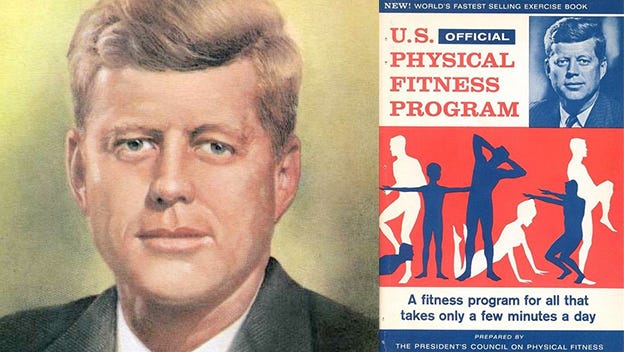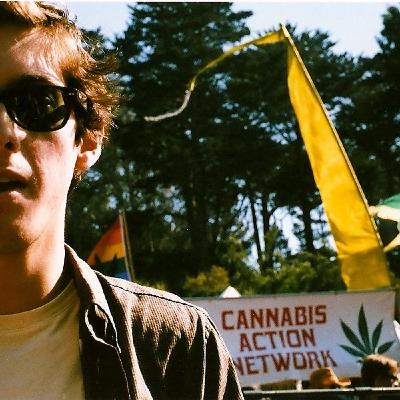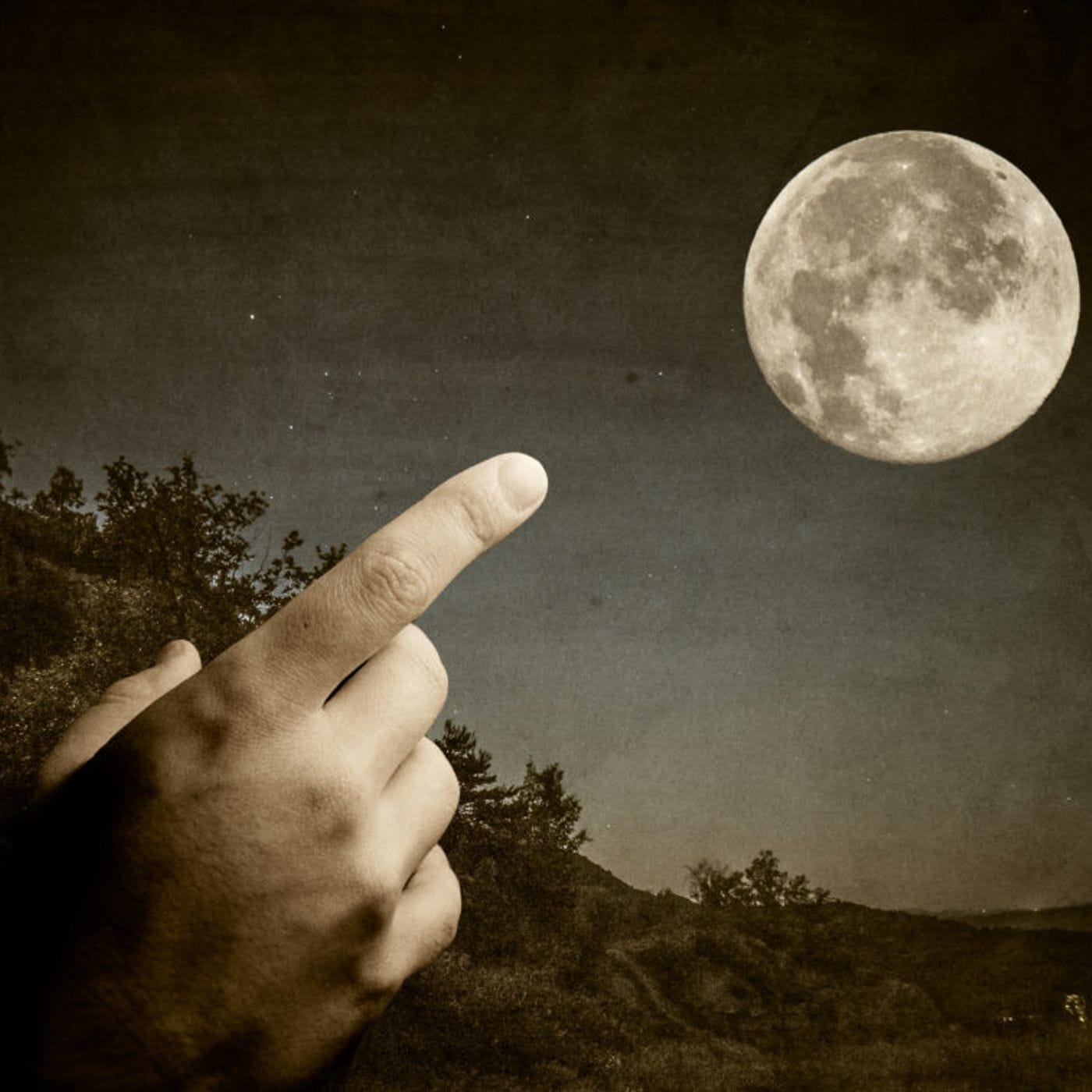Discover Confessions of a Recovering Pothead
Confessions of a Recovering Pothead

 Confessions of a Recovering Pothead
Confessions of a Recovering Pothead
Author: Charlie Deist
Subscribed: 2Played: 87Subscribe
Share
© Charlie Deist
Description
A resource for recovering marijuana addicts on recovering a natural, healthy functioning of the endocannabinoid system, plus my personal experiences overcoming marijuana addiction and going after all those lost, forgotten pipe dreams.
www.charliedeist.com
www.charliedeist.com
6 Episodes
Reverse
NOTE: This conversation between myself and Isaiah was recorded during a strenuous walk up a steep cemetery drive – the first of what might become a series of “Zone 2 Podcasts.” Zone 2 is the range of physical activity at which your heart rate is elevated, but you are still able to maintain a conversation (albeit with some huffing). Despite the sound quality limitations, I like this format and hope you will enjoy the freestyle discussion. However, if you want to cut to the chase, I’ve summarized the key points in a “Sweetened Condensed Transcript” below.I first crossed paths with Isaiah during the arduous 50-mile trek from Point Reyes to San Francisco in 2021. Though he came with a mutual friend, I regarded this newcomer with skepticism (as I often do). Yet over the course of those long miles, as we pushed our bodies to the brink, I discerned in him an extraordinary character and principled intellect. From the camaraderie forged on that journey blossomed a treasured friendship. The following year, Isaiah again joined our hardy crew in taking up the 50-mile challenge around all three bridges of San Francisco Bay. Stymied by poor footwear choice (hiking boots), he battled valiantly to the 35-mile mark before conceding. Throughout these tests of will and strength, his stalwart spirit shone through. In the two years since we met, my bond with Isaiah has deepened over frequent discussions on matters of consequence. Health and fitness, of course, but also technology, philosophy, and politics. He accompanied me once more on this year's 50 mile march, leading the way when doubt crept in. Without his motivation at my darkest hour, I might not have finished due to a nagging ankle injury that flared up even before the half-way mark. Now, Isaiah and I are working together to elucidate the nutritionally-dense wisdom of the late Ray Peat using the power of Large Language Models (more details on this to come). This endeavor is but one small facet of a friendship that compels me to live more boldly. I am fortunate to have comrades who spur me to greater heights. Such noble company can only bloom through ‘muscular bonding’ - swimming frigid waters, cycling, running, marching. When physical limits are tested, and conversation flows freely, that is when the human spirit ascends. I hope others will follow our example, organizing communities around such edifying activities as the 50 mile march. Together we can renew the vigor of our citizenry and rekindle faith in our national promise. Sweetened Condensed TranscriptThe following transcript is a recapitulation of our recent walk and talk. For a full record, listen to the audio of the conversation.Recollections and Memories of the 50 Mile MarchCharlie: It's amazing to look back now, a couple months later, at the 50 mile march we did in May. It feels like it's faded into the past. I'm trying to pinpoint the timing - I think it was around JFK's birthday, May 28th or 29th, which also happened to be Pentecost Sunday. That gave the march some extra meaning, falling 50 days after Easter.We planned the route carefully this time, scouting it out ahead of time by bike. The stretch from Carmel down to Santa Cruz became familiar. Still, when we set out on foot to walk the 50 miles, there was a sense of stepping into the unknown.With a few months of hindsight now, what memories stand out most from the march? What do you think you'll remember 10 years from now?Isaiah: This was the first 50 mile march I actually completed, so it sticks in my mind for that reason. I underestimated how much harder that second half would be. At the halfway point, after 25 miles, I thought I was cruising. But the final 25 miles were so much tougher mentally and physically. To finish, I just had to decide to power through wall after wall mentally, no matter how much it hurt. I don't think I've ever pushed through that much mental resistance before. Those final miles, digging deep to find the will to continue, are what will stay etched in my memory.Physical Preparation and RecoveryCharlie: What was your recovery journey like?Isaiah: Yeah, I mean, when we first got back to where we were staying that night, I was just too mentally tired and needed to sleep. I remember waking up really hungry but unable to move. Luckily I had some beef sticks within reach from the bed. The main lingering issue for me was foot pain. I did the march in minimalist shoes, which wasn't ideal for all the concrete.Charlie: Yeah, we both wore Lems, minimalist shoes. And you know what they say, “Lems Chads Stay Winning.” The fact that you stuck it out is a testament to both your chadliness and your winningness.Isaiah: For most of the second half my left foot hurt so much it changed my gait, which made my calves super sore behind my knees.Charlie: I wondered if my ankle thing was from some kind of compensation too. I feel like I was betrayed by some of the GOATA principles around biomechanics that I thought would be protective. Maybe we're not meant to move in prescribed "perfect" ways all the time. My natural gait got me through the first times just fine.Walking doesn't require glycolytic energy like resistance training. But this march challenged my body's endurance at a deeper cellular level. I didn't give myself the recovery time needed afterwards, which pushed me onto the wrong side of the hormetic curve. There's an ideal level of stress that's growth promoting, but too much becomes damaging. I’ve wondered about the best nutrition strategy for ultra endurance – whether to train in a fat-burning ketogenic state, versus fueling with quick-burning sugars during the march itself. In past marches I’ve experimented with bone broths and avocados rather than sugary snacks. But this year the halfway point cafe – aptly named The Power Plant – with its sugar shots was an oasis that powered me through.The Mental Game of Pushing Through AdversityCharlie: Was the main difference this year your footwear, or was it more about your mental commitment to finish no matter what?Isaiah: It was a combination of both. The footwear allowed me to get deep into the march and feel mentally ready to finish the last 10 miles. Last year the blisters from my boots changed my gait in a way I couldn't push through.But ultimately, it's like 80% a mental game. Lots of people physically can walk 50 miles - it's the pain you have to suffer through. This was the only time I've powered through that much mental resistance.Charlie: I see committing to and following through on hard things as a superpower. But there's a risk of not honoring commitments, which weakens your ability to bind your future self. For instance, I planned to start an extended fast today, but I ended up having some fruit because I was feeling weak. It's a point of shame, but also a lesson in listening to my body's signals at times.So where do you draw the line between foolish persistence and admirable grit?Isaiah: You can't consolidate it to one line. You always need to balance competing priorities. But the 50 mile march is a contained way to train your ability to push through when you hit a wall mentally. That can help you navigate those situations later in life.Training for Life and Doing Hard ThingsCharlie: I like to talk about the march as training for life, and then life trains you for the march. Walking develops grit that helps in daily life. And daily challenges train grit that makes the 50 mile march possible.What do you think - will average Americans start waking up to taking responsibility for their own health and getting outside their comfort zone?Isaiah: There's something virtuous and charismatic about taking care of your health. Most people have the opposite problem - outsourcing their health to a corrupt medical system. So encouraging self-responsibility for health is a positive vision that can wake people up. Like a high school girl wanting to get fit - the pure act of caring for your health inevitably wakes some people up.Charlie: My long term strategy is less about political change and more about building community around vital physical culture. Hopefully many decentralized groups emerge. They can subtly interconnect to foment change when the time is right. Any subculture of people taking health into their own hands plants seeds of a new enlightenment. I'm hatching plans for next year's 50 mile march already - notably, more cushioned shoes! Always remember, Lem's chads stay winning.The first 50-mile march was actually organized by a student from my high school, Redwood High, after being inspired by RFK’s feat. The ripples continue to spread.The Political Backdrop and MotivationCharlie: The 50 mile march this year had a political backdrop. Politics seems like an impossible mountain to climb. I've oscillated between ignoring it and morbid fascination. Dysfunction in politics causes so much pointless suffering - from environmental poisons to sick care designed to profit from disease.What do you see as the main political conflict today? Where are the battle lines drawn?Isaiah: Corporatism is the reigning ideology. Even many on the right claiming capitalism actually defend the status quo corporatism. The rot we see - environmental degradation, chemical pollution, microplastics - comes from an unprincipled system with immense power. It's not a grand conspiracy, just many little ones by bureaucrats and corporate interests wielding state power for self-gain.Charlie: Yes, rather than a grand conspiracy, it's the accumulation of errors over decades. Economist Robert Higgs called it the "ratchet effect" - government can't admit failure, so each new policy doubles down, making things worse. We need credible opposing narratives. Where do you see the rot most apparent?Isaiah: The vaccine issue has opened minds. The failure of the Covid vaccines makes people reconsider the childhood vaccines. Realizing that from birth the system has been callous to human well-being, at best, makes you question everything else th
Modern life is inherently constricting, stultifying, and often just plain boring. It's no wonder that more and more men are opting out of the rat race. If you once found marijuana to be a reliable gateway into unexplored realms, but are not struggling to peel yourself off the couch, I suggest reframing your dependency as a catalyst to break free of the constrained path you're on, into literal open space, where you can inhabit your body with confidence. This is a public episode. If you'd like to discuss this with other subscribers or get access to bonus episodes, visit www.charliedeist.com/subscribe
Does cannabis make you more creative, or just make you feel like it does?What makes someone opt to get high versus doing other things that are naturally rewarding?Josh Weil, my good friend and freshman year roommate tries to help me remember what those early days of smoking were like – when every high carried so much potency, and seemed to put me at my creative peak. In hindsight, while we had a lot of laughs, I'm not sure the musical stylings of our dorm room band were quite as genius as I thought at the time.Josh also relates his knowledge of resistance flexibility and Traditional Chinese Medicine, which posits an interconnectedness of muscle groups, organs, and psychological/emotional/spiritual traits, linked by meridians or energy pathways throughout the body. We talk about the importance of avoiding temptation and the desire for "the Real Thing" – i.e., being content in our bodies, with other people who feel good in theirs, having a good time and helping each other get better. This is a public episode. If you'd like to discuss this with other subscribers or get access to bonus episodes, visit www.charliedeist.com/subscribe
I used to be convinced that I had a natural deficiency that required marijuana to medicate away my boredom, restlessness and anxiety. I was sure that weed was the solution – not the problem – until my experiment in smoking all day every day led me down a rabbit hole from which I couldn't escape. Timmen Cermak, M.D., is the author of several books on marijuana, and a leading expert on how our natural endocannabinoid system (ECS) is affected by heavy marijuana use. Remember the old "This is your brain on drugs" ad? While an exaggeration, there's an element of truth in the frying pan analogy.In this episode, I weave Dr. Cermak's observations about the psychology and physiology of cannabis addiction with my own subjective experience both during my addiction and after I quit smoking. Find out how long it takes for your neurotransmitters and receptors to settle back to normal after you quit smoking, and regain the natural healthy functioning of your ECS, that will allow you to experience novelty and spiritual awe again, even when you're not high. This is a public episode. If you'd like to discuss this with other subscribers or get access to bonus episodes, visit www.charliedeist.com/subscribe
My name is Charlie and I'm a marijuana addict. Join me on my recovery journey – in search of pipedreams and Paradise Lost – in the heart of California's San Francisco Bay, where nature and the elements hold the key to unlocking an inward calm and healthy functioning Endocannabinoid system. Learn the 5 things that have kept me clean for 6 years and counting. This is a public episode. If you'd like to discuss this with other subscribers or get access to bonus episodes, visit www.charliedeist.com/subscribe
Being sober is more than just not using your drug of choice, whether marijuana, cocaine, alcohol, or anything else. It means being at peace with your identity as an addict, who craves the substance, but also a human with naturally good desires.The paradox of addiction is that the more we use our preferred drug, the less we get the desired effects over time. With cannabis, this is especially insidious, since it increases our dreams and ambitions while making it harder for us to realize them. Rather than idolize or demonize the drug, we should see the desire as fundamentally good, but disordered to the degree we lose control over our using, and cease to get what we want from it.Learn more & subscribe at https://confessions.fm/ This is a public episode. If you'd like to discuss this with other subscribers or get access to bonus episodes, visit www.charliedeist.com/subscribe










